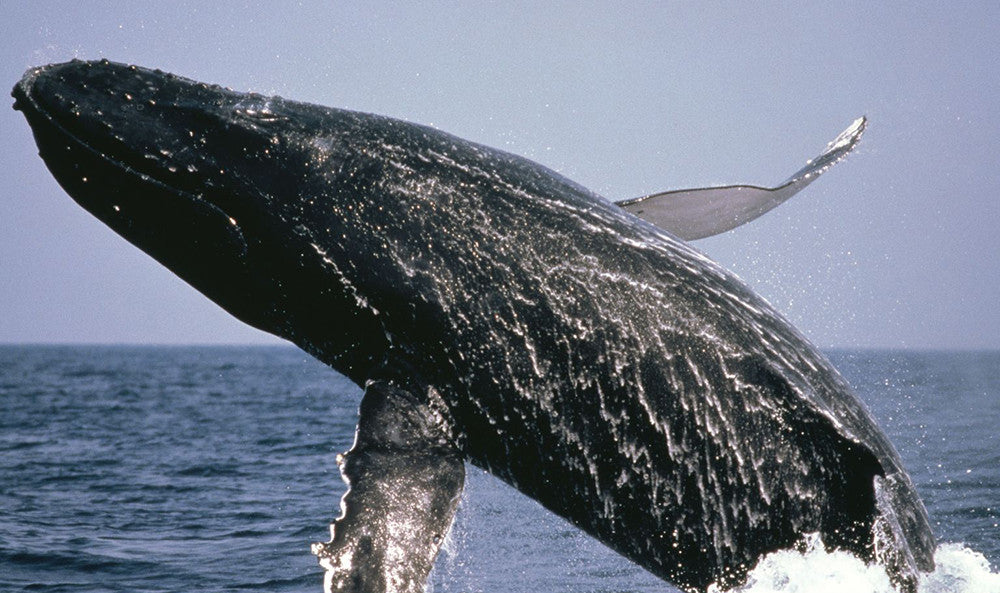
I was floating in the open ocean in the South Pacific Island Kingdom of Tonga. Twenty meters below me a giant humpback whale was singing. The harmony of his song vibrated through my whole body and in that moment I was brilliantly aware of the vastness and depth of the sea and the immense size of the mammal below me. I was completely at peace with an understanding of my own smallness and filled with gratitude to be alive. The experience is one I will never forget.
 A photograph of my breathtaking moment swimming with whales taken by Scott Portelli hangs on my wall and as I was looking at the picture recently I was immediately taken back. The memory is so meaningful because a few years before I’d been diagnosed with an autoimmune disease and a doctor told me to be prepared for a lifetime of debilitating arthritic pain. But while I was drifting with the singing whale in the ocean, there was no pain in my body. I was filled with awe, wonder and amazement.
A photograph of my breathtaking moment swimming with whales taken by Scott Portelli hangs on my wall and as I was looking at the picture recently I was immediately taken back. The memory is so meaningful because a few years before I’d been diagnosed with an autoimmune disease and a doctor told me to be prepared for a lifetime of debilitating arthritic pain. But while I was drifting with the singing whale in the ocean, there was no pain in my body. I was filled with awe, wonder and amazement.
The picture prompted me to do some research to see what the latest science shows about feelings of profound awe and it turns out, there is a growing body of evidence showing that these experiences not only make us feel good in the moment, but they are also good for our health.
Scientists have long known that stress and negative emotions can trigger proinflammatory cytokines in your body. These molecules are very useful if you’re sick or injured but in the long term they can be damaging to your health and are associated with illnesses like diabetes, heart disease and depression. Researchers from the University of California, Berkeley wanted to see if positive emotions could have the opposite effect.
In exchange for credit in a psychology class, they had 200 students fill out questionnaires about their emotional tendencies and provide saliva samples. They found that those who reported more positive emotions had the lowest levels of inflammatory markers. The interesting thing is that while positive emotions were collectively associated with lower levels of inflammation, the more that the students reported having experienced awe, wonder and amazement on the day their saliva was taken, the lower their levels of inflammation were.
So the prescription for those of us wanting to find new ways to reduce inflammation is to seek more daily awe. But what exactly is awe? And how can we use this fascinating information for our everyday health?
The good news is that you don’t have to go swimming with humpback whales to feel it. These researchers have shown that they can induce awe by playing a video featuring waterfalls, whales and astronauts. Afterwards their subjects felt less impatient, more willing to volunteer their time and experienced greater overall life satisfaction.
Another way researchers have been able to induce feelings of awe was to simply have subjects look at spectacular grove of Tasmanian blue gum eucalyptus trees planted on the campus at the University of California Berkley for one minute. It’s interesting that the test subjects who looked at the massive trees not only reported feeling more awe, they were also more willing to help someone who ‘accidentally’ dropped a packet of pens nearby.
All this makes wonder at the possibility of exposing people to awe-inducing moments and it’s potential to offer low-cost, simple and effective tools for boosting well being, on both individual and community levels. If feeling awe is good for our immune system and makes us more altruistic, then the effects are win-win.
In fact, some of the leading researchers looking at this subject believe that chronic awe deprivation has had a hand in a broad societal shift making us more individualistic, more self-focused, more materialistic and less connected to others. They say we need to actively seek out awe-inspiring moments in our every day lives.
You might like to ponder inspiring works of art, watch an episode of Planet Earth, go for a walks in nature, stare into the eyes of a new born baby, take in stunning views or learn new mind-expanding theories. Whatever way you go about it, the research shows that the key is to find a sense of vastness that gives you a new perspective on the world and your place in it. I'd love to hear your ideas for getting a daily dose of awe in the comments below.
FURTHER READING
A series of though provoking essays written by the leading researchers on awe
The website of some leading awe researchers currently doing web-based research calling for people to submit their own personal experiences of awe.





 My Year of Living Mindfully (DVD)
My Year of Living Mindfully (DVD) The Connection (DOWNLOAD-TO-OWN)
The Connection (DOWNLOAD-TO-OWN) My Year Of Living Mindfully - Book
My Year Of Living Mindfully - Book




